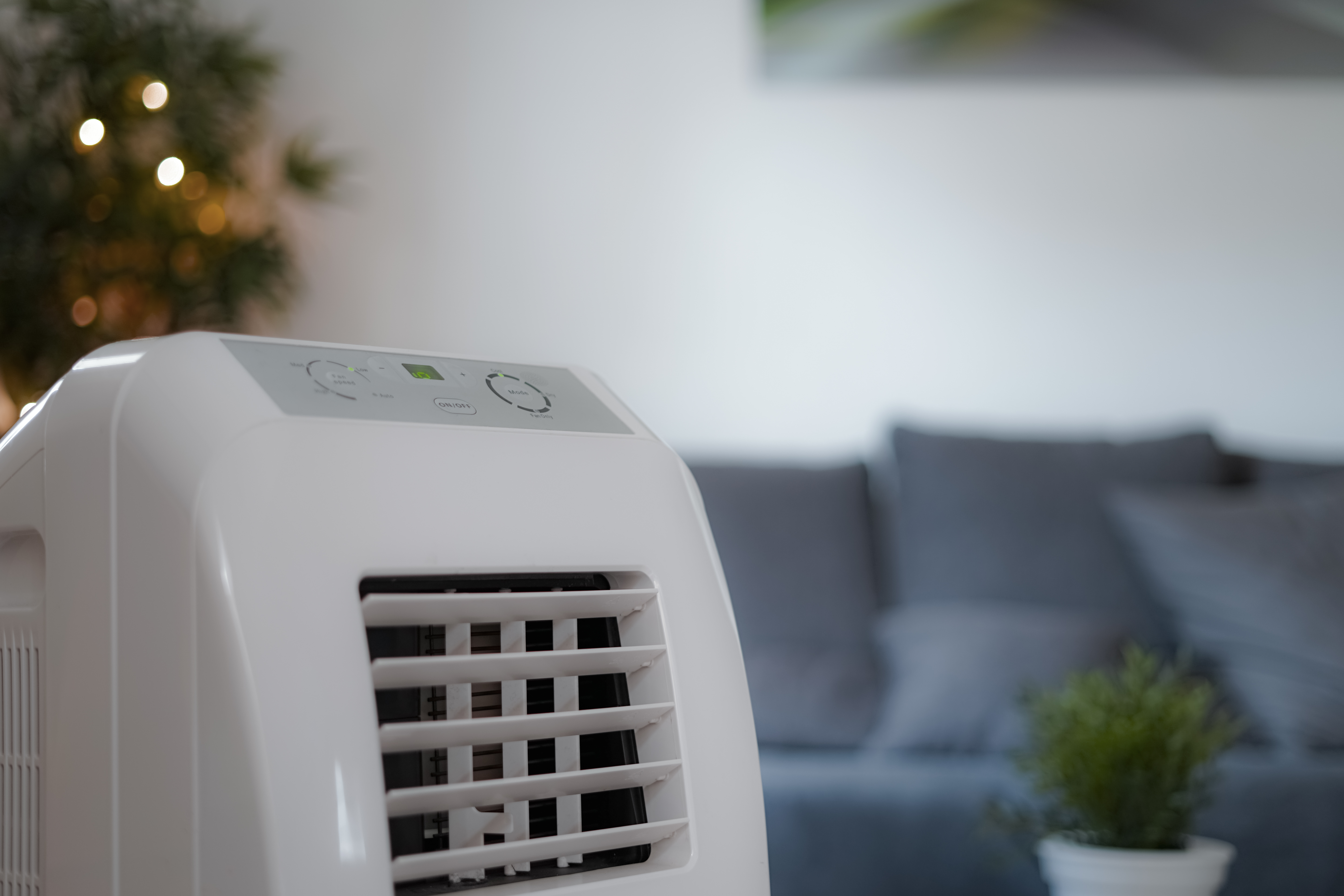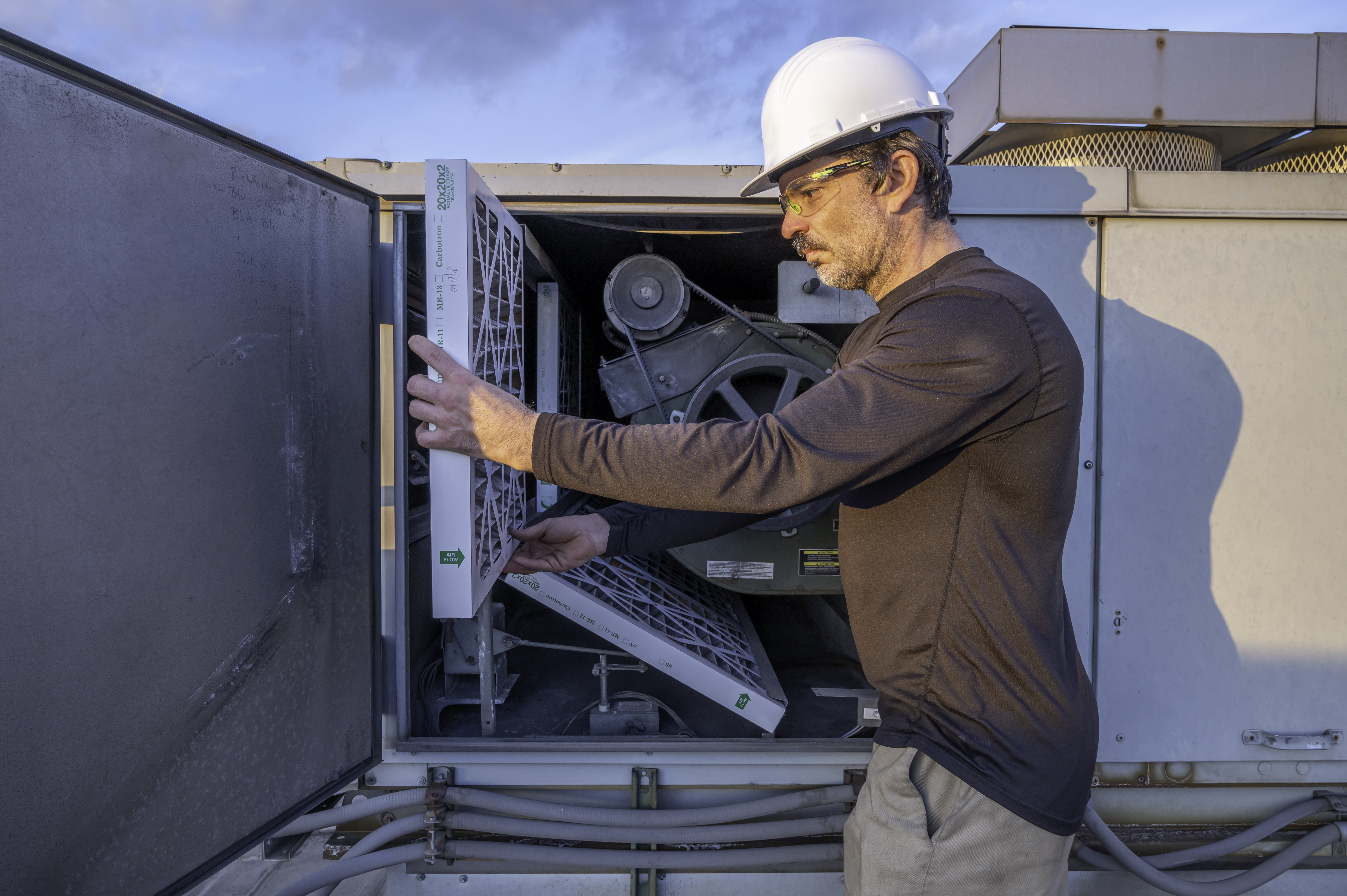
Heating and cooling system on the fritz? Discover the factors that go into HVAC repair costs and how you can save money on this crucial home update.
Heating and air conditioning service costs depend on your project and location. Check with a local pro for your specific job.
On average, it costs between $3,355–$7,105 to replace an AC unit in Indianapolis.
Most people pay around $5,157 to install a new air conditioner.
Your AC replacement costs in Indianapolis, IN, depend on the type, size, and efficiency of your AC unit.
You’ll also need to pay an HVAC pro to install your new system.
The average AC replacement cost in Indianapolis, Indiana, is $5,157. However, depending on the type and size of your air conditioner, you could pay between $3,355 and $7,105. In the city’s warm and muggy summers, it can be uncomfortable to live without AC. If you’re in need of a new cooling system, here’s how much it’ll cost.
Before you reach out to an HVAC pro in Indianapolis, Indiana, it helps to understand the costs involved in AC replacement. Here are some of the main factors.

There are several types of AC units on the market, and the one you pick will have a big impact on your AC replacement cost. If you only need cooling in one room, you could opt for a window or portable AC unit, both of which cost less than $1,000.
On the other hand, if you want a system that works throughout your house and you already have ductwork, central air would be a better solution. These types of whole-home systems start at $2,500.
| AC Type | Average Cost Range | Pro | Con |
|---|---|---|---|
| Portable unit | $100–$500 | DIY installation | Takes up floor space |
| Window unit | $150–$800 | Can be removed for winter | Noisy |
| Ductless split system | $2,000–$3,000 | Zoned cooling without ductwork | Can’t cool an entire house |
| Central | $2,500–$4,500 | Whole-home cooling with the press of a button | Requires professional installation |
Your AC size will also affect how much you pay for AC replacement. Larger air conditioners—which are those with more tonnage or British thermal units (BTUs)—have higher cooling capacities and can remove more heat from your space per hour. As you might expect, the bigger the AC unit, the more it costs.
To find the right size AC unit for your home, your contractor will run a Manual J calculation. For this, they’ll consider the square footage of your house, along with the condition of your ductwork and insulation, the number of places where heat can escape (including windows and doors), and several other factors.
| AC Tonnage | BTUs | Average Cost Range |
|---|---|---|
| 1.5 | 18,000 | $1,300–$4,000 |
| 2 | 24,000 | $1,500–$5,000 |
| 3 | 36,000 | $2,000–$5,500 |
| 4 | 48,000 | $2,600–$6,200 |
| 5 | 60,000 | $2,800–$6,800 |
An air conditioner’s energy efficiency rating affects its price as well. Models with higher Seasonal Energy Efficiency Ratio (SEER) ratings use electricity more efficiently, so they consume less power to cool your space. While that can result in lower monthly energy bills, you’ll pay more upfront for a higher-efficiency unit.
The U.S. Department of Energy has HVAC efficiency standards for new air conditioners sold and installed in the U.S. In Indianapolis, the minimum SEER rating for AC units is 14. On the SEER2 rating system (a newer version of the SEER model), the minimum is 13.4.
You could pay more for labor if your air conditioner or air ducts are difficult to access. For example, let’s say your outdoor AC unit is on the roof of your apartment building, or some of your ductwork is in a cramped crawl space in your basement. In either case, your local AC installer may require extra time or special equipment for the job, which may drive up their labor prices.
We’ve covered the factors that influence the cost of your AC unit, but there are other expenses involved in AC replacement as well. Here are the main variables.
There isn’t a state-level license for HVAC contractors in Indiana. However, in Indianapolis, contractors must have an HVACR license to “install, modernize, replace, service, or repair” cooling systems, according to the city of Indianapolis' Department of Business and Neighborhood Services. As a homeowner, it’s important to confirm that your AC installer has a valid license before they begin working on your air conditioner.
In addition to an Indianapolis HVAC license, pros who work with refrigerants should also have a certification from the U.S. Environmental Protection Agency.
You can’t install a new air conditioner in Indianapolis until you have a permit from the city. Before hiring an AC contractor, confirm they’ll pull the required permits for your project. Also make sure any HVAC quotes you receive include the cost of permits.
In Indianapolis, new air conditioners are subject to the city’s 7% sales tax rate. That might not equate to much on a window or portable AC unit, but on an average-priced central AC system, this would add around $180 to $320 to your AC replacement costs.
If AES Indiana is your electric company, you may be eligible for a rebate or discount when you upgrade to a more energy-efficient air conditioner. The exact amount depends on the type of AC unit and its SEER rating, but as an example, if you install central AC with a SEER rating of 16, you could receive a $300 discount.
In Indianapolis, where summers are often hot and humid, having a new AC system will work to your benefit when it comes time to sell your home. Many buyers will appreciate (or even expect) their next house to have a functional cooling system so they can stay comfortable on muggy Midwest days.
However, you’ll also want to consider the other half of your HVAC system: the heating component. You can boost your home's resale value even further—by between 5% and 7%—if you upgrade both parts of your HVAC system at the same time.
Home is the most important place on earth, which is why Angi has helped more than 150 million homeowners transform their houses into homes they adore. To help homeowners with their next project, Angi provides readers with the most accurate cost data and upholds strict editorial standards. We survey real Angi customers about their project costs to develop the pricing data you see, so you can make the best decisions for you and your home. We pair this data with research from reputable sources, including the U.S. Bureau of Labor Statistics, academic journals, market studies, and interviews with industry experts—all to ensure our prices reflect real-world projects.
Want to help us improve our cost data? Send us a recent project quote to [email protected]. Quotes and personal information will not be shared publicly.
From average costs to expert advice, get all the answers you need to get your job done.

Heating and cooling system on the fritz? Discover the factors that go into HVAC repair costs and how you can save money on this crucial home update.

Factors such as labor and parts impact the final price of repairing a window AC unit. Learn all of the costs associated with window air conditioner repair.

The cost of boiler repair depends on the specific issue. Read our expert guide, which breaks down boiler service costs so you can budget accordingly.

Baseboard heater covers can endure a lot of wear and tear, but eventually you’ll want to replace them. Here’s the best way to switch out baseboard heater covers.

Wondering who to hire for swamp cooler installation? Learn when to call an HVAC contractor, electrician, or handyperson, and what to expect.

Do you have a clogged AC drain line? We dig into the reasons behind those pesky blockages and how to clear them for optimal AC performance.